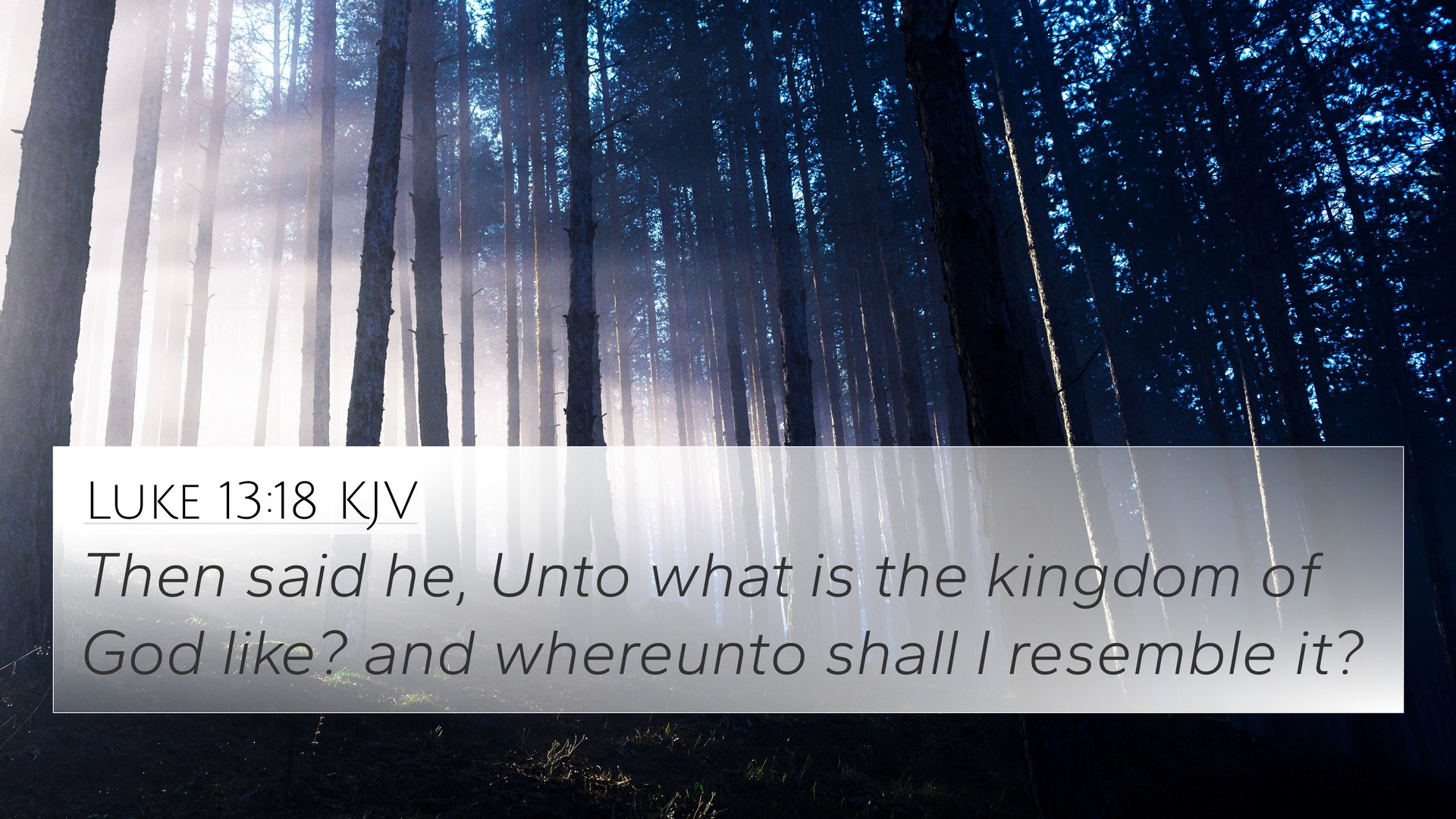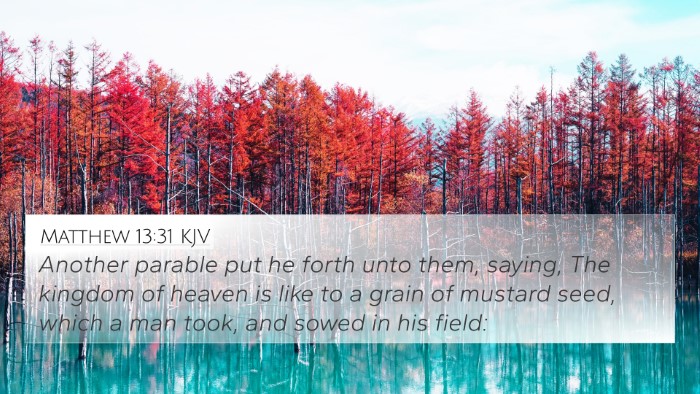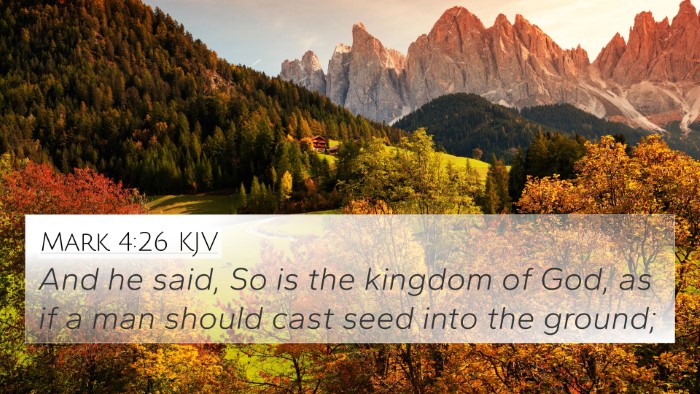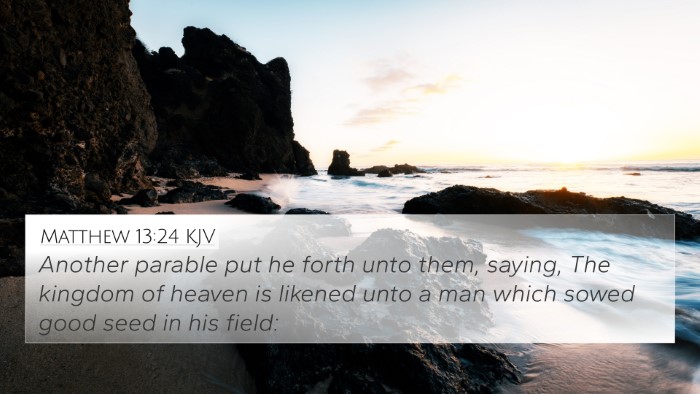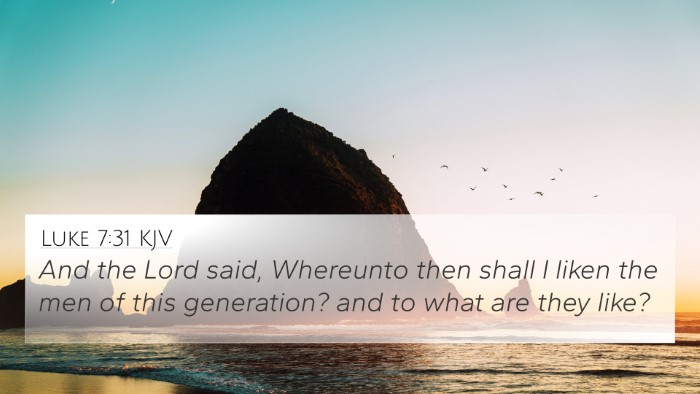Understanding Luke 13:18
Luke 13:18 says: "Then said he, Unto what is the kingdom of God like? and whereunto shall I resemble it?"
This verse introduces a significant teaching about the nature of the Kingdom of God. In this passage, Jesus is prompting his listeners to understand the characteristics of God's reign. By asking the question, He invites them to consider analogies or comparisons that might convey the essence of God's Kingdom.
Sermonic Insights from Public Domain Commentaries
-
Matthew Henry: Henry explains that Jesus uses parables to convey profound truths about the Kingdom. He emphasizes that the Kingdom is both a present reality and a future hope, marked by growth, transformation, and divine intervention.
-
Albert Barnes: Barnes notes that the question challenges the listeners to reflect on their understanding of God's Kingdom. He suggests that the Kingdom may be likened to various elements in nature, illustrating its silent yet powerful work in the spiritual realm.
-
Adam Clarke: Clarke elaborates on the metaphorical nature of the question, asserting that the Kingdom of God operates quietly and mightily—similar to the mustard seed which grows into a tree. This illustrates the potential growth from small beginnings into something magnificent.
Key Themes and Messages
The thematic focus of this verse underscores the abiding presence of the Kingdom of God that often goes unnoticed yet is influential in the lives of believers. By posing His question, Jesus encourages His audience to think deeply about the transformative power of faith.
Related Bible Cross-References
- Matthew 13:31-32 - The parable of the mustard seed, showcasing growth from small beginnings.
- Luke 17:21 - "The kingdom of God is within you," indicating the internal nature of God's Kingdom.
- Mark 4:26-29 - The parable of the growing seed, which highlights the mysterious and gradual work of God's Kingdom.
- Romans 14:17 - Describing the Kingdom as righteousness, peace, and joy in the Holy Spirit, emphasizing its spiritual dimensions.
- Matthew 6:33 - Jesus instructs to seek first the Kingdom of God, positioning it as a priority in a believer's life.
- John 3:3 - Jesus speaks about being born again to see the Kingdom of God, implying a transformative experience.
- Acts 1:3 - The messages of the Kingdom of God delivered by Jesus post-resurrection, proving its continuity and centrality in His teachings.
- Revelation 21:1-4 - A vision of the ultimate fulfillment of God's Kingdom, depicting a new heaven and earth.
- 1 Corinthians 15:50 - Discussing the nature of the Kingdom in relation to mortal and immortal beings.
- Hebrews 12:28 - Mentioning receiving a Kingdom that cannot be shaken, reinforcing its eternal stability.
Conclusion
Luke 13:18 serves as a beckoning call for deeper exploration into the nature of the Kingdom of God. By connecting this verse with various Biblical narratives through cross-references, believers can gain a richer understanding of God's eternal purposes. The process of cross-referencing Biblical texts helps unveil the intricate dialogues within Scripture, showcasing the interwoven tapestry of divine revelation.
Tools for Bible Cross-Referencing
- Utilizing a Bible concordance can lead to greater understanding of cross-references.
- Bible cross-reference guides can assist in locating related verses quickly.
- Applying cross-reference Bible study methods enhances thematic studies.
- Engaging with Bible reference resources offers comprehensive insights into scripture linkage.
- Exploring Bible chain references can help see the links between various teachings.
